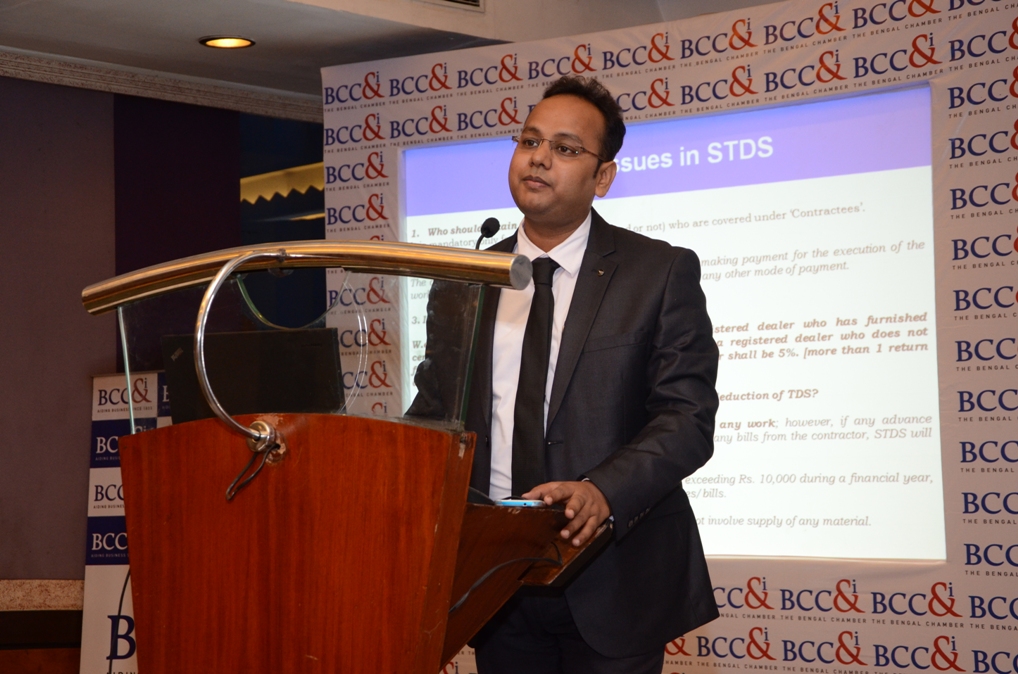Across the country objections have raised by the GST Department on erroneously availed but not utilized ITC. In this article we will discuss on such objections and the legal provisions in this regard.
First as per Sec 50(3) read with sec 42(10) of CGST Act, payment of interest is only triggered where there is a reduction in output tax liability. Hence in instances where there is no reduction in output tax liability but only erroneous availment of excess input credit, which has not been utilized by the assessee, interest liability is not triggered.
Secondly there is no financial benefit of availment of excess ITC to the assesse and therefore no revenue loss to the exchequer. Hence it is against the Rule of Law. Rule of law contemplates governance by laws and provision of justice by the men to whom the governance is entrusted for the time being. The rule of law means that decisions should be made by the application of known principles and rules and, in general, such decisions should provide Justice and remove hardship of the citizens.
Thirdly, this scenario was also considered by the 31st Meeting of the GST Council held on 22nd December 2018, wherein the council has agreed that Section 50 (3) of the CGST Act shall be amended so as to provide that interest would be leviable only “on the amount payable through the electronic cash ledger” of the taxpayer. The Press Note stated as under –
“Amendment of section 50 of the CGST Act to provide that interest should be charged only on the net tax liability of the taxpayer, after taking into account the admissible input tax credit, i.e. interest would be leviable only on the amount payable through the electronic cash ledger”.
Hence in our view, in the cases where the excess input credit was erroneously availed but not utilized and was reversed through unutilized credit balance available in the electronic credit ledger in the GST Portal , there was no amount payable through the electronic cash ledger. Therefore there is no question of interest at all.
The above submission is also supported by the following judgements –
The Punjab & Haryana High Court had addressed the issue in its decision in Ind-Swift Laboratories Ltd. Vs Union of India [2009-240-ELT-328 (P&H)], wherein it was held that no interest was payable if the CENVAT Credit is merely availed and not utilised for payment of tax.
The Punjab and Haryana High Court, again in CCE vs. Maruti Udyog Ltd. [2007 (214) ELT 173 (P&H)], held that an assessee was not liable to pay interest where credits had only been availed erroneously but were not subsequently utilised
To invoke interest even when it is abundantly clear that no interest is payable incase ITC is merely availed and not utilised for payment of tax would certainly be arbitrary and restricting the freedom to carry on trade without any justification and would be in violation of Articles 14, 19 & 301 of The Constitution of India.






Nicely written explanations
Thanks
An assessee had availed an excess claimed of itc but not utilized in paying the tax liability in the financial year 2017-18, however, the assessee failed to reversed it in time… How do the assessee do…???
One case of my client is as folows :-
1. That the assessee had filed GSTR-3B for September month 2017 on dated 18.10.2017.
2. That the assessee had claimed the
Input IGST amount of Rs.1098976 instead of actual Input IGST amt of Rs.10989.76
The Notice had been issued by the GST Department to the assessee for Interest on ITC Availed
That the input amount of Rs 1098976 which claimed by the assessee in GSTR-3B was a clerical error due to not click on decimal(.) while filling the data.
3. That the assessee had rectified or reversed the ITC in July 2018 GSTR-3B by self assessment.
ITC Revesed amt was Rs. 1098976-10989.76 = Rs.1087986.24
4. That the assessee had not utilized this ITC between these periods.
Please suggest your opinion. What should we do
Please refer the recent judgment of HC of Telangana in M/s Megha Eng & infra Ltd (WP.44517/2018). The Court held in this case that the gross tax liability being settled partly in cash and partly in the form of a claimed input tax credit beyond the period prescribed, the interest liability falls on the gross GST liability.
The aforesaid decision of Swift Laboratories Ltd. Vs Union of India by reviewed by SC.The Apex Court examined in detail new Rule 14. The issue before it was whether the word ‘OR’ appearing in Rule 14 of the CENVAT Rules could be harmoniously read as ‘AND’, as was interpreted by the Punjab & Haryana High Court in its decision. The Apex Court held that if the aforesaid provision was read as a whole there was no reason to replace the word “OR” occurring in between the expressions taken or utilized wrongly or `has been erroneously refunded with the word “AND”. In other words, the Court clearly held that the credit became recoverable along with interest upon the happening of where the CENVAT credit had been taken or utilised wrongly or had been erroneously refunded.
Also the GST Council clarification is that interest is payable in net tax payable and not on output tax liability.This is not is connection with issue discuss